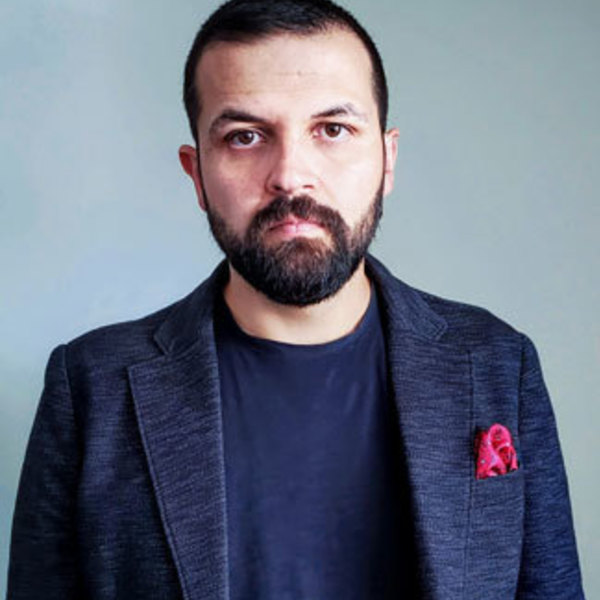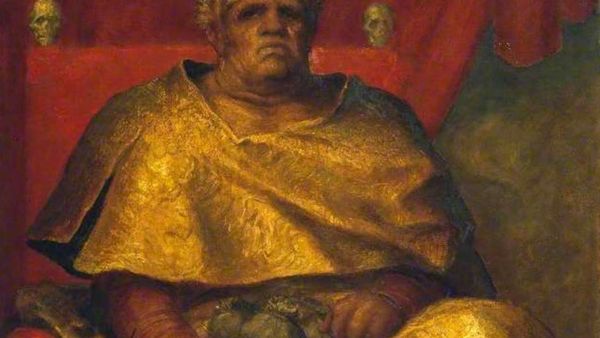Viewed from the outside, Catholicism’s social teachings appear to be a perplexing gamut of unreasonably extreme positions lacking in any overall coherence. Sharp criticisms of laissez-faire capitalism and militarism sit side-by-side with denouncements of pornography and divorce. A preference for the material poor is joined to a veneration of spiritual hierarchy. Condemnations of prison conditions and ecological devastation are paired with opposition to abortion and moral relativism. Particularly when seen through the eyes of the contemporary American culture war, the Catholic Church appears erratic, even raving in its moral passions.
One small way to begin discerning some philosophical coherence in Catholic political theology is to recognize that the Church is radically demanding on what she sees as the infinite worth and dignity of the human person. Catholic Social Teaching is a thoroughgoing humanism, which holds that every human life embodies an immeasurable moral weight that cannot be instrumentalized as a means to achieving some other social good. This refusal to treat human persons as tools to social, political, and economic utility holds no matter how disproportionate and overwhelming the consequences might be.
This is one way to arrive at the Catholic Church’s hostility to all forms of moral and political consequentialism (from Machiavellianism to utilitarianism) which hold that an action is good or bad based on its effects. An infamous example is the Church’s intransigent repudiation of the dropping of the atom bombs on Hiroshima and Nagasaki—a decision justified by the American government in terms of a supposed calculus of lives saved in comparison to the fatality rates of other courses of action.
The deaths of over 200,000 Japanese remains from the Catholic perspective inherently wicked because it involved the killing of innocents and non-combatants (many of them women and children). Indeed, even killing a single innocent child to end something as massive as a world war is, on the Catholic view, a permanent and inexpungible evil. There is no moral scale, heaped with consequences, upon which the killing of that child is morally justifiable.
A clear sign that Catholics in the United States have strayed from the Magisterium is that such uncompromising humanism is viewed by many as naïve—the sentimentalism of idiots and theologians. This has made for an American Church peopled with what might be termed “cafeteria consequentialists” or moral selves selectively and opportunistically vacillating between the infinitely demanding humanism of the Gospels and the cost-benefit analyses of ethical utilitarianism and political Machiavellianism. To make matters worse this incoherence fits a pattern of party identification and not simply the eclecticism of low-level moral mediocrity and confusion. Political party (and in one case a fanatical cult of personality) has become for many Americans the operative magisterium.
Cafeteria consequentialism is particularly ironic on the Catholic Right, which spent decades mobilizing around a legal movement prohibiting abortion on the assumption that the termination of innocent life could not be justified no matter what the consequences. This legal—and not merely ethical—absolutism is often defended in all possible cases (from rape, incest and those endangering the health of the mother to more common occurrences like the birth of a child into extreme poverty or with a disability). In such advocacy, the Catholic Right often accuses Church liberals of slipping into an unspoken moral consequentialism—reasoning in a way that is anathema to the Church’s theology.
Yet the COVID-19 pandemic has made clear that cafeteria consequentialism is not a propensity of a single side: too many Catholics on the American Right have drifted into market forms of instrumentalizing humans in the name of the long-term material consequences. As Pope Francis recently wrote the “COVID-19 lockdown” is not so much uncovering something new as it is “a crisis that reveals” what was already “in our hearts.” What it has revealed in many American Catholic hearts is how deeply acclimated they have become to an economy that sacrifices the wellbeing and even lives of the poorest by advancing consequentialist justifications and promises of future riches.
For example, Phil Lawler, criticized the economic shutdown in November (a month in which over 4 million Americans fell ill) as “panic-porn” and posited that “the lockdown is costing lives—more surely than it is saving.” Tacitly accepting that an open economy robs working Americans of their health and lives due to COVID-19, Lawler’s approach was to parry with a form of cost-benefit analysis. “When a productive citizen stays home,” Lawler warned ominously, “there’s a cost to society—a cost that can ultimately be measured in lives.”
In an article from August, Lawler sounded even more apocalyptic claiming that economic shutdowns were nothing short of an attempt by nefarious “elites” to “abolish” and “forfeit community” by carrying out the mass “suicide of our culture.” With a lack of irony verging on the sublime, Lawler went on to accuse those who wished to slow the spread of the virus of participating in what John Paul II called a “culture of death”—a culture that he noted included the “legalization of abortion, the breakdown of marriages, the trend toward euthanasia, [and] the acceptance of aberrant sexuality.”
Amid a pandemic that has thus far seen the United States fail to protect its citizens from death and disease at levels nearly unrivaled by peer countries, Lawler neglected to see how his own market fundamentalism might be contributing to a “culture of death”—including the sacrifice of thousands of elderly people in the name of economic prosperity. In a country where race and poverty are often coupled, it should not surprise Lawler to learn that studies show that in addition to higher fatality rates among the elderly, Blacks were by the most recent count three times more likely than whites to contract the novel coronavirus and Latinos more likely than either of these groups. Yet conspicuously missing from Lawler’s characterization of papal exhortations about a culture of death was the persistent, unambiguous critique of racial hierarchy as well as predatory, laissez-faire market capitalism.
Yet it is precisely the economic and technocratic culture of what I have analyzed elsewhere at length as the “market polis” that has left American society so poignantly ill-equipped to handle the public commons amid a global pandemic. Catholics like Lawler have yet to sufficiently reckon with the fact that the anthropology utilized by the market “sciences” undergirding such cost-benefit analyses have deep historical roots in quasi-utilitarian conceptions of human agency that helped form neoclassical economics.
A moral sensibility acclimated to market consequentialism was also evident in the response of a number of Catholic intellectuals like Catherine Pakaluk—a professor of economics from the Catholic University of America. Pakaluk claimed in April that policy enacting economic shutdowns was the equivalent of burning “down the house for fear” of a “spider.” Like Lawler, Pakaluk argued in terms of a consequentialist logic, suggesting that “26 million livelihoods and counting” had been lost to the economic shutdown and demanded the economy immediately “reopen.”
Pakaluk also admonished Americans of dire consequences if they did not heed her call to end controls on the economy. On April 14 she wrote “I promise you” that “maintaining the lockdown will dwarf any bad outcomes . . . food, healthcare, housing, it’s all going. to. crash. [sic]” Like many consequentialists, Pakaluk’s thinking tacitly requires a strong form of social scientific predictive knowledge. This is because consequentialism, to make its ethical judgments, necessitates predictive knowledge of cause and effect, particularly when enacting social policy. That no such technocratic, predictive knowledge of human behavior is available only further undermines the moral authority of such voices when their dramatic predictions so often fail to materialize.
Unfortunately, the ideology of market-consequentialism evident in Pakaluk, Lawler, and many other Americans long predates the pandemic. Those who zealously defend laissez-faire market orders, have for decades engaged in an ideological apologetics for what the journalist Chris Hedges has identified as “sacrifice zones” in sweatshops, migrant communities, and the precarious economy where workers lack robust bargaining rights and are subject to abysmal compensation, harmful conditions, and various forms of modern debt peonage.
This rank abuse of the poor is made possible by what the Catholic philosopher Alasdair MacIntyre has characterized as a form of political “heedlessness” that allows millions of Americans to ignore the fact that their own prosperity and low-price commodities are not incidental but derived from the abuse of fellow human beings. Everything from the relatively cheap prices of food at the grocery store (grown by illegal migrants) to electronics (assembled offshore by sweatshop workers) are hidden by our active heedlessness.
Although the occasional acolyte of Ayn Rand happily argues that crushing economic hierarchy is good in and of itself, more frequently market consequentialists accept that ending phenomena like worker exploitation and homelessness are good, but are quick to add that such suffering must go on due to the supposed beneficent effects for prosperity and technological innovation in the long run (another strong predictive claim). In this way, many who moralize the economy stumble into the crudest forms of economic utilitarianism. Sweatshops, homelessness, debt peonage, exposure to harmful workplace environments and diseases like COVID-19 are justified by economic “science.” Whatever else one thinks of this form of moral reasoning it is clearly incompatible with Catholic theology.
The fact that our current economy demands a choice between unjust amounts of exposure to COVID and livelihood is a much deeper condemnation of the current market order than Pakaluk, Lawler, and their sympathizers realize. A society that forces people to decide between their ability to feed, clothe, and house their families and massive fatality and sickness is not reconcilable to Catholic teachings about the infinite dignity and worth of the human person.
The global pandemic has revealed something hidden: namely, American Catholics must either convert and think more deeply with the Church or continue to indulge in a form of ideology that is anathema to the Gospels. The pandemic did not invent the sacrificial logic of an inhumane economy. Instead, it stripped away the many layers of obscuring ornament and rhetorical niceties that in normal times hide it from polite company and allow the slow, soporific dance of heedlessness to continue unabated.
What is now left in plain sight—like an open sore for all to see—are the bald consequentialist appeals justifying the disproportionate illness and death of poorer, browner, wage-working Americans who are pushed directly into harm’s way. This situation was not achieved by fair, free contract but through social conditions so desperately coercive that the most vulnerable must gamble on their own wellbeing and of those they love most. They face impossible, inhumane dilemmas.
Faithful Catholics must therefore move beyond market consequentialism and join in bonds of solidarity with all those who seek to rid the market of sacrifice zones. Such solidarity will require creativity, imagination, and the humility to listen and learn from others outside the Church. A human economy is one which does not simply tolerate the instrumentalization and sacrifice of the poor and vulnerable as the “necessary” byproducts of a prosperity machine. Those who have slipped into deifying the free market and its machine logic of sacrifice must repent and find ways small and large to humanize the economy. The kingdom of heaven demands it of us. As for all those who prefer the laissez-faire market to Jesus’s kingdom of radical human kinship—verily, I say, they have their reward.


